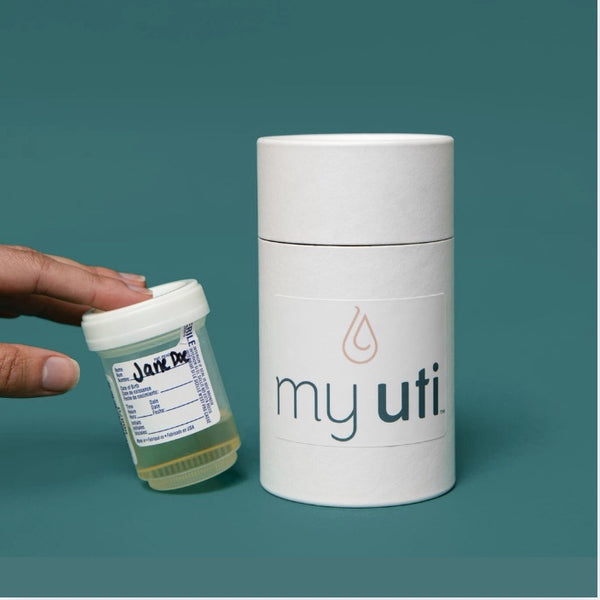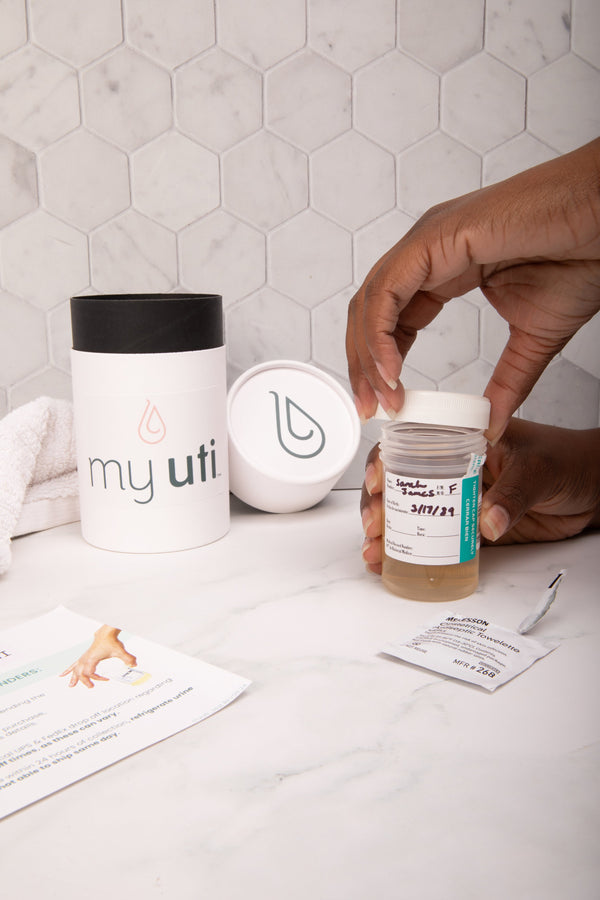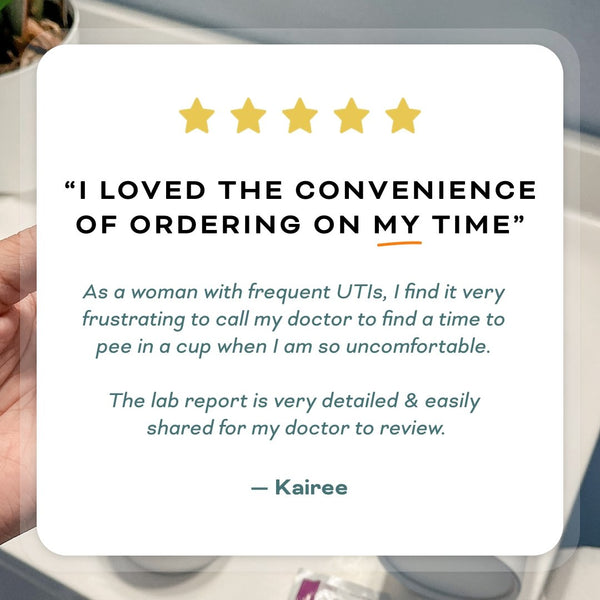UTI Antibiotic Resistance: Are Your Treatment Options at Risk?
Jul 06, 2023
Did you know that urinary tract infections (UTIs) are the 2nd most common infection, and most prevalent among women? But here's the catch: the overuse and misuse of antibiotics have led to a not-so-friendly development called UTI antibiotic resistance.
As a follow up to Antibiotic Resistance & Why It Should Matter to You, we spoke with infectious disease clinician and expert Dr. Ari Frenkel about the risks involved specifically with UTIs and antibiotics. We discuss the common bacteria that have become resistant, whether antibiotics can still save the day, and most importantly, the steps you can take to avoid finding yourself in this tricky situation.
Understanding UTI Antibiotic Resistance
So, what's the deal with UTI antibiotic resistance? Well, it happens when the bacteria causing UTIs become clever and learn how to survive and multiply despite the antibiotics trying to kick them out. It's a growing problem worldwide and can make treating UTIs a real challenge.
“Antimicrobial resistance is a real problem! According to recent publications antimicrobial resistance is responsible for killing at least 1.27 million people worldwide and associated with nearly 5 million deaths in 2019.” Dr. Ari Frenkel
Common Bacteria and Antibiotic Ineffectiveness
Among the UTI-causing bacteria, the most notorious troublemaker is Escherichia coli (E. coli). Unfortunately, some strains of E. coli have become resistant to common antibiotics like trimethoprim-sulfamethoxazole (eg. brand name Bactrim) and fluoroquinolones (eg. brand name Cipro). But it's not just E. coli; bacteria like Klebsiella pneumoniae and Enterococcus faecalis have also shown resistance in UTI cases.
“We are actually running out of antibiotics,” Dr. Frenkel emphasizes. “Each year that goes by, less options are available for the treatment of UTIs. Many of the commonly used antibiotics, like nitrofurantoin, beta-lactams, and even aminoglycosides are no longer recommended for common causes of complicated UTIs.”
Can Antibiotics Still Fight UTIs?
Now, let's talk about antibiotics. Should they be used to treat UTIs? Absolutely! But here's the catch: we need to choose the right antibiotics based on the specific bacteria causing the infection and the antimicrobial resistance patterns. It's crucial to ensure we're using the most effective options available.
Steps to Avoid Antibiotic-Resistant UTIs
Alright, let's dive into the steps you can take to dodge antibiotic-resistant UTIs:
-
Test Then Treat: If you suspect a UTI, and are getting them often, the first steps should be seeking testing. Targeted treatment requires evaluating your symptoms, running appropriate tests, and prescribing the most suitable antibiotic based on the bacteria involved. Trust us, this is listed first for a reason!
-
Complete the Full Course: Here's an important rule to remember—always finish the full course of antibiotics as prescribed, even if you're feeling better. This helps ensure the infection is fully cleared and reduces the risk of antibiotic resistance.
-
Embrace Good Hygiene: Regular hand washing before self-play or foreplay and proper wiping technique after using the restroom can work wonders in reducing the risk of UTIs. It's a simple habit that goes a long way!
-
Stay Hydrated: Hydration is key! Drinking plenty of water helps flush out bacteria from your urinary system, lowering the chances of infection. So grab that water bottle and sip away!
Dr. Frenkel does point out that there can be nuance with the timing of testing, “In many cases, where patients are too sick to wait for testing, clinicians should still obtain urine samples prior to antibiotic administration, and prescribe antibiotics keeping in mind the most common culprits and resistance. Once the specimen returns from the lab, antibiotics can then be tailored to make sure the right one was chosen from the get go.”
How can the MyUTI Test support antibiotic stewardship?
The MyUTI Test with Arkstone Report can be a game-changer when it comes to antibiotic stewardship!
But, HOW? Imagine having an infectious disease expert guiding your UTI treatment. Proving personalized and direct recommendation utilizing best in class artificial intelligence, and years of infection disease expertise, to assure your clinician the proper antibiotic to get you better, fast.
Let’s break it down:
-
Accurate Diagnosis: With the MyUTI Test, you can collect a urine sample from the comfort of your own home. It detects the DNA of the bacteria causing your UTI, giving you a clear picture of what's going on down there. No more guesswork!
-
Antibiotic Guidance: The Arkstone Report that comes with the MyUTI Test results is like having your own personal UTI expert. It tells you which antibiotics will be most effective against the specific bacteria causing your infection. Say goodbye to the trial-and-error approach!
-
Personalized Treatment: Thanks to the detailed information provided by the MyUTI Test and Arkstone Report, your healthcare provider can tailor your treatment plan to target the exact bacteria causing your UTI. It's like having a custom-made solution just for you!
-
Avoiding Unnecessary Antibiotics: There is power in a negative! The MyUTI Test helps you avoid unnecessary antibiotic prescriptions by confirming if your symptoms are really caused by bacteria. No need to take antibiotics for something that won't respond to them! You can then talk to your clinician about other factors like menopause or prostate issues.
-
Minimizing Treatment Failure: Let's face it, no one wants a recurring UTI. By giving your healthcare provider insights into the bacteria's resistance patterns, the MyUTI Test and Arkstone Report help ensure that the common antibiotic prescribed are effective. Say goodbye to those pesky infections that just won't go away!
Final thoughts from the expert
Gone are the days in which we can afford to prescribe “just in case”. Antibiotics are not vitamins or without side effects, in fact, they can actually cause harm like kidney and liver damage. It has been well established that taking antibiotics when it's not needed can cause serious outcomes to the gut as well, such as C.difficile.
Don’t rush to request an antibiotic, measures like Azo and drinking water can relieve early symptoms until you receive confirmation of the bacteria causing your symptoms & infection.
So, if you want to take control of your UTI treatment and be a steward of responsible antibiotic use, check out the MyUTI Test. It's your ally in fighting UTIs without compromising the effectiveness of antibiotics. It's time to say goodbye to UTIs with confidence!










